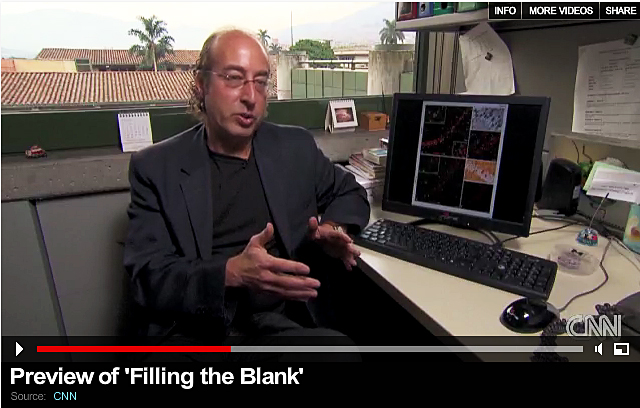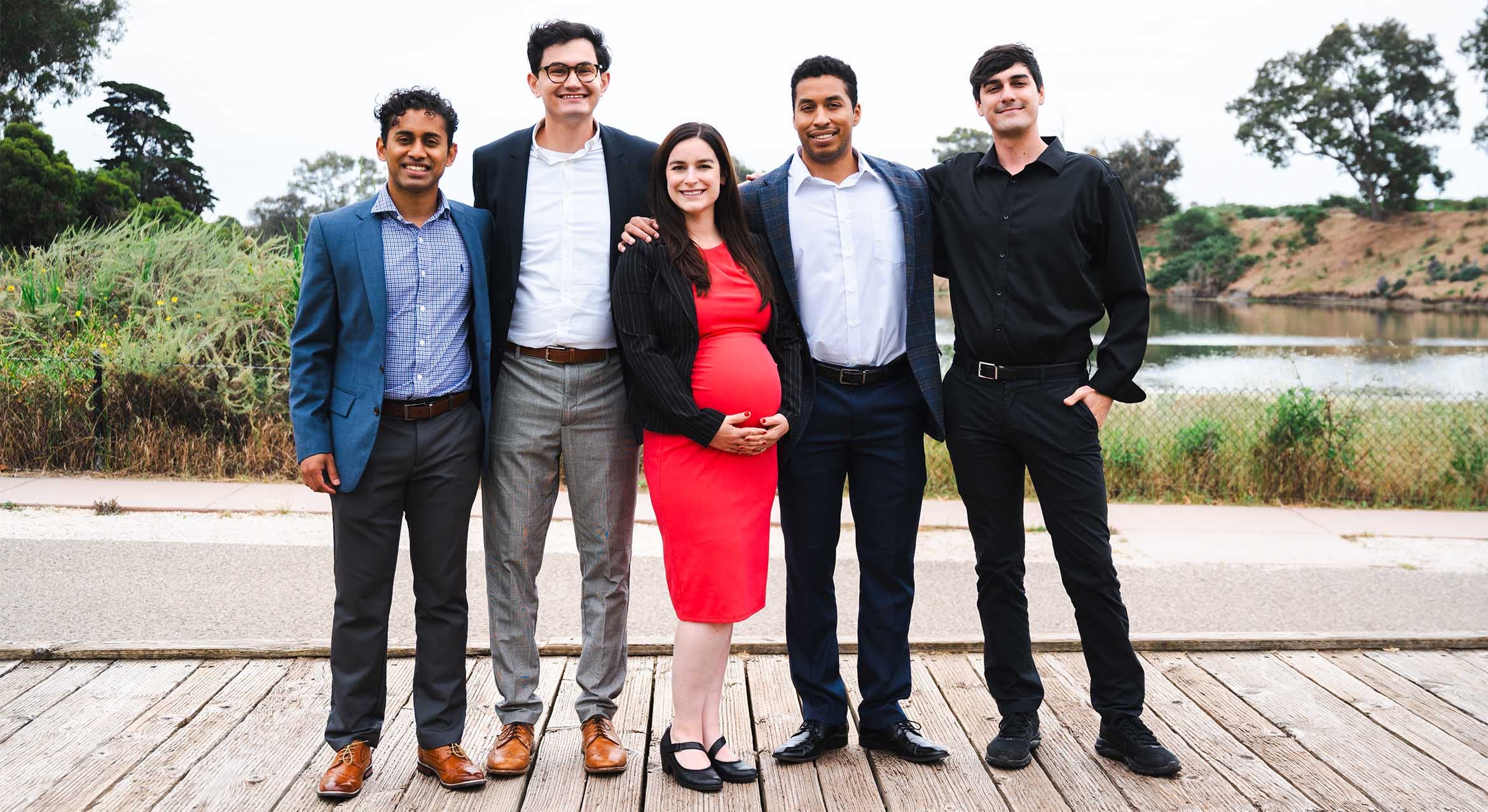
Filling the Blank, a documentary by Cable News Network featuring the research of UC Santa Barbara professor Kenneth S. Kosik, will be broadcast Saturday, Jan. 29.
Kosik is a professor in the Department of Molecular, Cellular & Developmental Biology (MCDB). He holds the Harriman Chair in Neuroscience Research and is co-director of UCSB's Neuroscience Research Institute. In addition, Kosik is a practicing physician specializing in Alzheimer's disease.
The documentary, produced by CNN's International & Espanol Special Projects Unit, follows Kosik as he and other scientists tracked the history of Alzheimer's disease for 20 years in an extended family in Medellin, Colombia. Members of this extended family, spread over one region of Colombia called Antioquia, have passed this Alzheimer gene from generation to generation. In each generation, affected family members get the disease in their mid-40's.
Together, the extended family is the largest cluster of familial Alzheimer's disease in the world. According to Kosik, the family members who carry the Alzheimer's gene will definitely get the disease.
"This type of early onset Alzheimer's disease is very poignant," said Kosik. "People in their mid-40's have textbook memory loss. And, they lose the ability to take care of themselves. We often see a parent caring for a middle-aged son or daughter with the disease."
Kosik explained it is possible to test people in the Colombian families for the gene, and predict who will get the disease and who will be spared. The ability to predict who and when family members will get the disease raises the possibility of developing clinical trials to find out whether or not certain drugs and other therapies are effective in delaying the disease in those family members who have the gene.
"We have the opportunity to treat this disease before it strikes," said Kosik. "We would be able to find out if drugs really work."
Negotiations are ongoing regarding arranging a clinical trial in Colombia. Ethical issues, such as obtaining informed consent from patients, is one of the delicate issues involved in this remote location.
Back in Santa Barbara, Kosik works diligently at UCSB's Neuroscience Research Institute looking for ways to understand the way Alzheimer's disease attacks the brain. Many promising results have come from his laboratory. "More scientific research is required if we are ever going to eradicate this disease," said Kosik. "Alzheimer's disease is a worldwide problem. It affects every ethnic group and every socioeconomic group. It places tremendous burdens on families and on society."
Kosik is also founder of the first full-service community-based "cognitive shop" in the nation –– CFIT (Cognitive Fitness and Innovative Therapies), a non-profit located in Santa Barbara.
Kosik is author of "The Alzheimer's Solution: How Today's Care is Failing Millions and How We can Do Better," written with Ellen Clegg, science writer and communications specialist for the Broad Institute. The authors state that the best way to cope with the disease is to try to treat it before it starts. They note that the disease process –– degeneration of the brain –– can begin as much as 10 years before there are any symptoms.
† Top photo: Kenneth S. Kosik in Medellin, Colombia, at the neuroscience research office at the University of Antioquia
credit: CNN/Felipe Barral/Greg Kilday
Related Links



